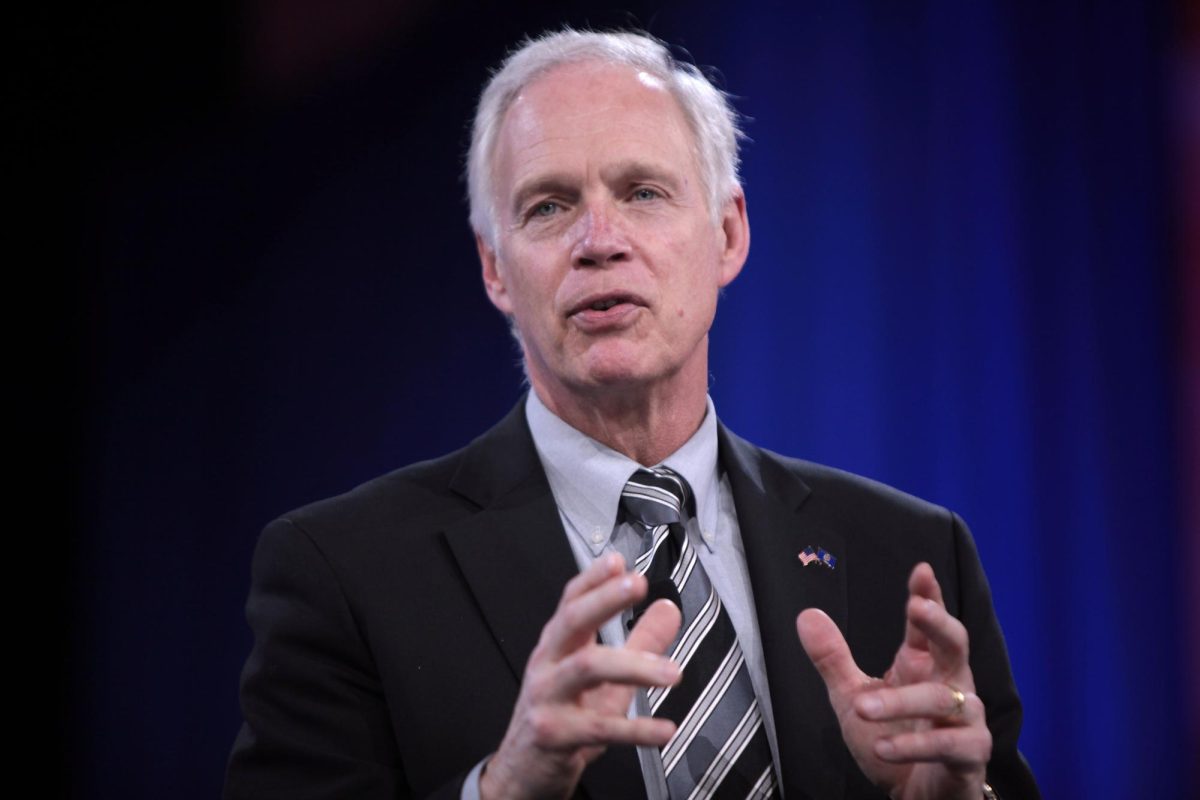When a small group of student athletes entered an open meeting with the Intercollegiate Athletic Committee on Oct. 15, they were looking for answers as to why their teams would no longer have a place at UW Oshkosh.
Five days later, the IAC issued its statement. Men’s soccer and tennis players said they still don’t understand the reasons behind the cuts and were hoping to discuss them with the IAC, a committee devoted to making policy suggestions to administration.
“We’ve had no chance to sit down with administration about this,” men’s soccer coach Wyste Molenaar said. “I’m still confused by it.”
Players were granted permission by the IAC to state their concerns in front of the committee and athletic director.
Each team was given five minutes to speak and ask questions. The major concern the two teams had were the criteria used when determining which programs to cut.
The criteria included the sports’ conference affiliation, Title IX compliancy, budget cuts and the possibility of competing in an automatic qualifying match.
Soccer began the statements, lead by former men’s soccer player Daniel Kobin.
He approached the committee with a list of concerns ranging from the lack of transparency during the decision-making process to the inadequate effort on the University’s behalf to rectify the situation.
“Athletic Director [Darryl] Sims has said numerous times that he is not willing to find a new athletic conference or more teams for us to join, nor is he willing to do anything in the future,” Kobin said.
Kobin went on to question statements made by Chancellor Andrew Leavitt to a group of alumni regarding the reasoning behind the cuts over the summer that he said contradicted previous statements made by the University.
“Chancellor Leavitt said to our alumni over the summer, ‘No, [the cuts are] not about the budget,’” Kobin said.
Tennis followed with its own statement, highlighting the operational costs of the tennis program and questions regarding fundraising opportunities.
“We were told we couldn’t run on fundraising,” UWO men’s tennis player Austin Laumb said. “If this is a problem and we have a solution for the same problem, there is something wrong with the athletic department. It’s free money for the University even if we eventually can’t fund ourselves, you can say ‘We were right’ and cut our program.”
Laumb said other teams at UWO and UW-LaCrosse were allowed to run on fundraised dollars.
“Why did Darryl allow the wrestling team to run on fundraising when it was about to be cut?” Laumb said. “Not allowing us to fundraise is ridiculous. The LaCrosse baseball team was allowed to be saved with fundraising. $11,000 is pretty easy to come up with, and we’ve been offered three to five years [of funding] from our alumni.”
UWO men’s tennis player Vinnie Gorski said they were able to locate conferences themselves that they would be qualified to join.
“We have found four conferences that are in the midwest, two of them having an odd number of teams, which would probably gladly accept the men’s soccer and tennis programs,” Gorski said Following the statements, IAC chairman Steven Brown thanked the men for their time and moved on to other items on the agenda.
“The committee did not react at all in regards to the men’s soccer and tennis statements,” Kobin said.
“There have not been any engaging discussions between the IAC and student athletes, so it is difficult to tell how IAC members feel in regards to the decision.”
UWO men’s soccer player Matthew Cheaney’s frustration grew in the days following the meeting.
“I think they want to avoid it at all costs,” Cheaney said following the meeting. “Why this isn’t being addressed or taken more seriously is beyond me. It’s astounding that nothing’s being done.”
Molenaar said the communication from the University has been unclear as he and his team try to understand the criteria.
“If there was a clear-cut reason, it would stick,” Molenaar said. On Oct. 21, Brown sent a written statement to the teams addressing some of their concerns.
IAC’s statement addressed the lack of transparency as officials decided which programs to cut.
It contended that the decision was made at the executive level but said no student groups requested more information, and more student involvement could have done “more harm than good.”
“The Oshkosh Student Association and the Student Athlete Advisory Committee were informed by Mr. Sims that sport reduction was a real possibility,” the IAC statement said. “Furthermore, there is no evidence to show that members of either student group requested more information or discussion on the matter.”
Assistant Vice Chancellor Jamie Ceman said there has been a lot of confusion on the reason the teams are being cut.
“I know Danny Kobin made a statement to the IAC, and he said the chancellor told the alumni that it wasn’t about the budget,” Ceman said. “That’s very unclear. What the chancellor said was when looking at which program to cut, the size of each programs’ budget was not a factor. They were being cut because of the overall budget.”
In regards to the budget, Ceman said the athletics department knew it was operating a non-viable program following a financial audit conducted in 2014.
The audit indicated the department could not financially sustain the amount of teams it housed with the resources it had.
When the statewide multi-million budget cuts were announced earlier this year, the University had to begin making reductions.
“The budget cut just put more urgency on the findings that came out of that study,” Ceman said.
Ceman said the money saved from the two programs and coach salaries will be re-instated into the department to offset operating costs.
“This is fundamentally looking at the money we have in our base budget and the money being saved by those coaches’ salaries,” Ceman said. “Most of what’s happening to that budget is it’s being redistributed back to those programs.”
The IAC statement did not acknowledge the possibility of fundraising the teams from outside donations.
According to the IAC statement, the soccer team was not a part of the WIAC because two schools had dropped out of the conference.
It did not address other conference possibilities brought up by men’s tennis.
“With regard to men’s soccer, actions taken by UW-Superior and affiliate member Finlandia University to leave the WIAC directly impact the conference championship and conference affiliation criteria that were used,” according to the statement. C
eman said soccer and tennis teams across the board have been cut, making it more difficult for the WIAC commissioner to find conferences for UWO.
“The commissioner’s role is to find more teams to bring into our conference,” Ceman said. “He’s been unsuccessful for years for teams to come in. If you really look at the budgets over time for UW campuses, that are primarily WIAC affiliated, as soccer became more popular, University of Wisconsin budgets were in decline.Part of the problem is we weren’t getting more soccer teams, and as programs were jumping out of the conference, we just started to run out of soccer teams and tennis teams to play.”
The statement said Title IX was taken into consideration to ensure UWO would still have an appropriate gender proportion.
“They considered Title IX only in the sense that cutting women’s sports would add an additional disproportion to male and female in the student roster, so Title IX wants a gender balance,” Ceman said. “It became obvious that a women’s team was not going to be able to be cut.”
Ceman said the criteria needs to be examined as a whole in reference to the budget cuts.
“If you look at these criteria as a stand-alone decision factor, none of them make sense,” Ceman said.
The IAC committee said it did not see a need to re-examine the factors behind the cuts.
“For the state of Wisconsin and UWO to maintain a balanced budget in the current economic climate, some tough decisions must be made,” the statement said. “Thus, we stand behind the decisions made by UWO administrators for the greater good of the University.”








